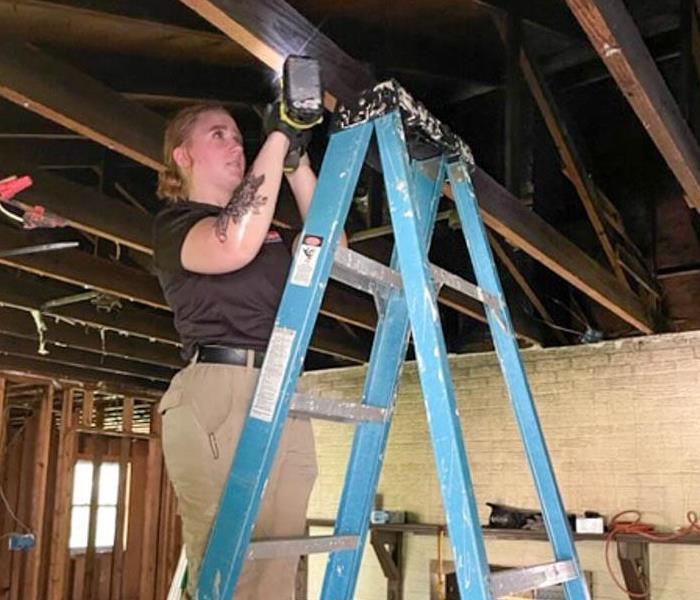Your Guide to Hurricane Insurance Claims in Florida
9/17/2023 (Permalink)
 Navigating the hurricane insurance claims process in Florida requires diligence, documentation, and a clear understanding of your policy.
Navigating the hurricane insurance claims process in Florida requires diligence, documentation, and a clear understanding of your policy.
Living in Florida offers many advantages, from the stunning coastline to a vibrant lifestyle. However, the state's geographical location also puts homeowners at risk of hurricanes and tropical storms. When the winds howl and the rain pours, having a solid hurricane insurance policy can provide much-needed peace of mind. In this comprehensive guide, we'll walk you through essential tips for a smooth and successful hurricane insurance claims process, ensuring that your property is restored and your life gets back on track after the storm.
Understand Your Policy
Before hurricane season arrives, take the time to thoroughly review your insurance policy:
Coverage Details: Understand the specifics of what is covered and what is not, including dwelling damage, personal property, and additional living expenses.
Deductibles: Familiarize yourself with your policy's deductible and how it applies to different types of damage.
Document Your Property
Creating a comprehensive inventory of your possessions is crucial:
Photographic Evidence: Take clear photos or videos of your property, including valuable items and structural features.
Keep Records: Maintain a detailed list of possessions, including purchase dates and receipts.
Secure Property Precautions
Before a storm approaches, take measures to protect your property and minimize potential damage:
Boarding Up: If time allows, board up windows and secure outdoor items to prevent them from becoming projectiles.
Secure Documents: Safeguard important documents, such as insurance policies, in a waterproof container.
Prompt Reporting
As soon as it's safe, report the damage to your insurance company:
Timely Notification: Notify your insurer promptly, providing details of the damage and any immediate repairs you've made to prevent further loss.
Keep Records: Maintain a record of all communications with your insurer, including dates, names, and reference numbers.
Obtain Professional Assessments
Request a thorough assessment of the damage from professionals:
Claim Adjusters: Your insurance company may send a claim adjuster to assess the damage and estimate repair costs.
Contractor Estimates: Obtain estimates from reputable contractors to ensure an accurate assessment of the repair costs.
Temporary Repairs
Engage in temporary repairs to prevent further damage:
Mitigation Efforts: Document any temporary repairs you make, such as covering roof leaks or boarding up broken windows.
Retain Receipts: Keep receipts for materials and services used for temporary repairs.
Detailed Claims Documentation
When filing your claim, provide comprehensive documentation:
Evidence: Include photos, videos, inventory lists, and any expert assessments or estimates you've obtained.
Descriptions: Provide detailed descriptions of damaged items and the extent of property damage.
Be Prepared for Adjustments
Understand that the initial claim may need adjustments:
Additional Damage: If further damage is discovered during repairs, promptly inform your insurer and provide documentation.
Negotiations: Be prepared to negotiate with your insurance company if there are discrepancies in repair estimates.
Patience and Persistence
The claims process can take time, especially after a widespread event like a hurricane:
Stay Informed: Keep communication lines open with your insurer and inquire about the expected timeline.
Follow-up: If the process stalls, follow up with your insurer and stay persistent in seeking updates.
Navigating the hurricane insurance claims process in Florida requires diligence, documentation, and a clear understanding of your policy. By proactively preparing, promptly reporting damage, and providing thorough documentation, you increase the likelihood of a successful and smooth claims experience. Remember, your insurance policy is your lifeline in the aftermath of a storm, providing the support you need to restore your property and rebuild your life. With these tips in hand, you can confidently face hurricane season, knowing you're equipped to handle the challenges that may come your way.



 24/7 Emergency Service
24/7 Emergency Service